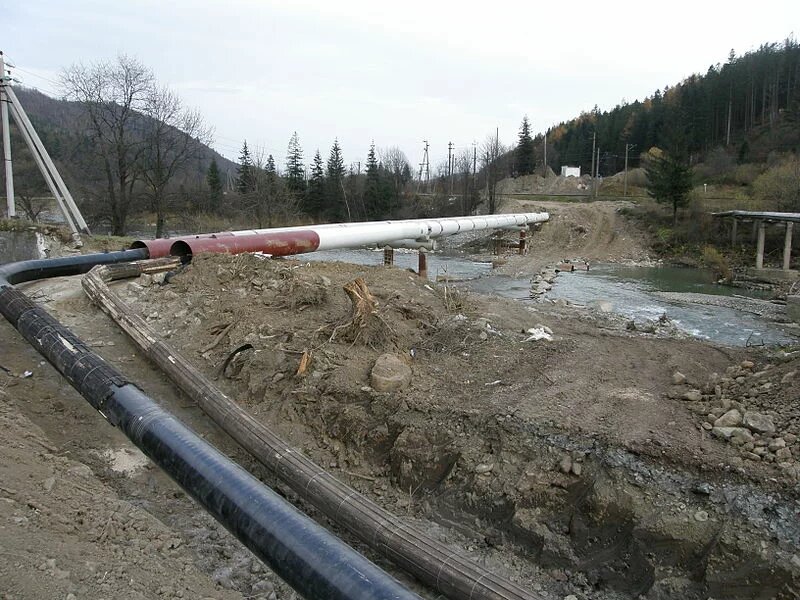
The European Union’s energy security has been severely tested over the past year. August’s Georgian conflict underlined the possible dangers of diversification into the post-Soviet space, with bombs landing in the vicinity of several crucial gas and oil pipelines including South Caucasus and Baku-Supsa, while the Russian-Ukrainian gas stand-off sent shivers across Europe in January.
It is in this context that the European Union officially launched its Eastern Partnership (EaP) proposal in Prague in early May. Rising from the ashes of the EU’s former European Neighbourhood Policy (ENP), this initiative aims to complement the Northern Dimension and the Union for the Mediterranean by providing the EU with a forum for discussing key issues with its eastern neighbours Armenia, Azerbaijan, Belarus, Georgia, Moldova and Ukraine.
Energy security is, naturally, one of the Eastern Partnership’s main priorities. Of particular importance are Ukraine and Azerbaijan, the former a major transit country responsible for transiting 80 per cent of Russian and Central Asian gas exports, the latter an emerging regional hydrocarbon exporter and gatekeeper to the strategically important gas reserves of Turkmenistan. Going much further than the initial European Neighbourhood Policy, the EaP aims to increase the ‘energy interdependence’ between the EU and its Eastern partners via institutional mechanisms including the Energy Community as well as strategic projects such as the EU’s flagship gas diversification project, the Nabucco pipeline, and the extension of the continental European electricity grid.
While Brussels presents the Eastern Partnership as a simple tool of formalised co-operation, the perceived contradictions between words and deeds in Brussels are considered by the Kremlin as stealth realpolitik based on double standards promoting the exercise of geopolitical and economic leverage in its ‘zone of privileged interest’.
By pushing for an EaP energy security policy that Russia believes to be detrimental to its interests, the European Union will inadvertently exacerbate a zero-sum game in the region. Moscow will feel forced to use its economic and political leverage to spoil any EU advances in order to protect its own position. Russia’s critical reaction to its exclusion from the recent Brussels-Kiev deal on Ukraine’s gas pipeline, in addition to Gazprom’s offer to buy all future Azeri natural gas exports in order to choke off the Nabucco pipeline, more than hints at its ability and willingness to do so.
Besides cementing geopolitical rivalry, competing EU and Russian policies in the region also create an unnecessary duplication of projects which can undermine both efficiency and commercial attractiveness. Examples include the Nabucco and South Stream gas pipelines and the EU’s plan to unilaterally extend its UCTE electricity grid to include countries such as Ukraine and Moldova instead of promoting the merger of the EU grid with the Russian Rim or IPS/UPS electricity system. The latter is not only bound to aggravate Moscow but also wastes the enormous commercial opportunity of building the world’s largest joint liberalised electricity market.
The European Union must realise that it needs a comprehensive and pragmatic engagement with the region, which includes both the Eastern Partnership countries as well as the Russian Federation. It would be unrealistic to solve the region’s energy security without its main supplier, Russia. Ideally, Brussels should consider linking the EU-Russia Partnership and Co-operation Agreement (PCA) with its Eastern Partnership initiative.
Such a policy could foster co-operation on a practical, functional, and non-politicised basis in order to overcome geopolitical rivalries. Not only would such an initiative enjoy a broader mandate but it would also check the zero-sum thinking that continues to plague the region, contributing to its instability. Without engaging the region constructively in co-operation with the Russian Federation, the European Union will continue to find itself struggling to design new initiatives for the region, consigning the EaP to the same historical dustbin as its predecessors.
Roderick Kefferpütz is responsible for Energy Policy at the EU Regional Office of the Heinrich Böll Foundation, a think-tank affiliated with the German Green Party.
Danila Bochkarev manages the EastWest Institute’s (EWI) Resource and Climate Security Project.
The views expressed are the sole responsibility of the authors and do not necessarily reflect the views of their organisations.
The article was first published in the European Voice.